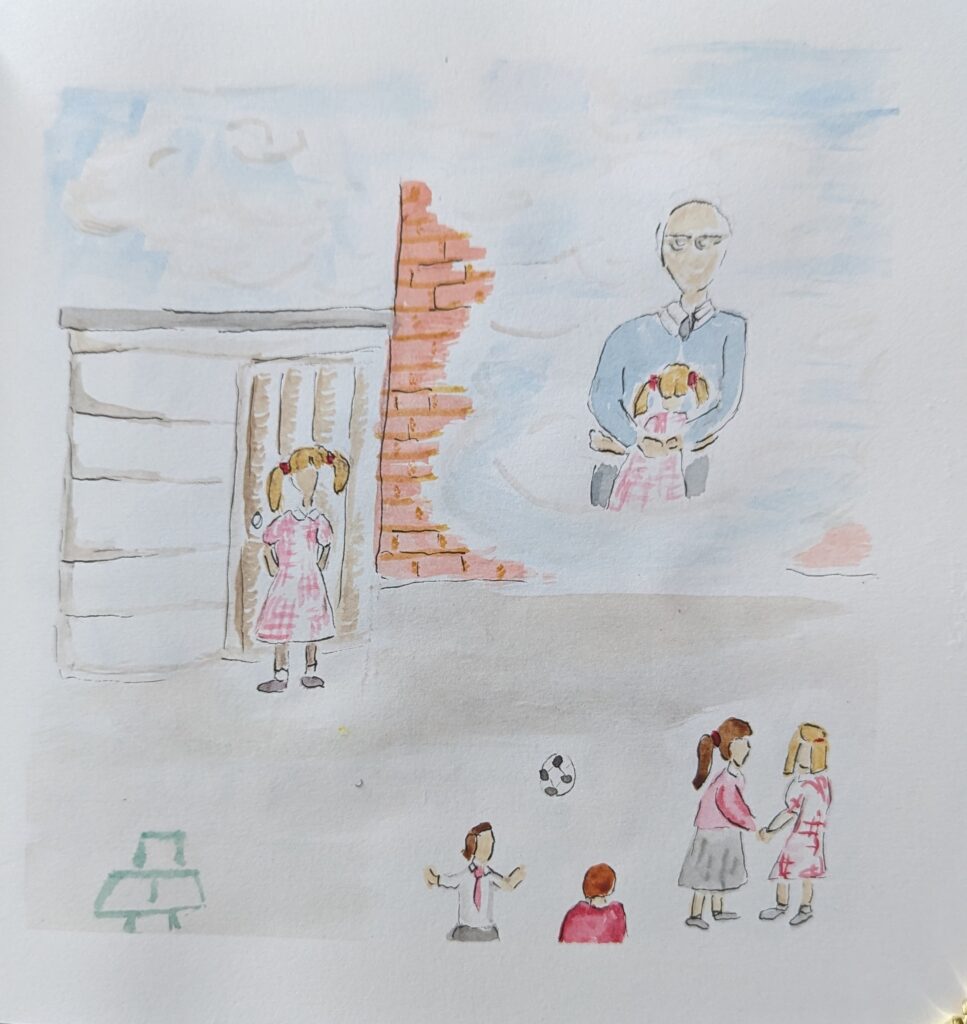The first memory I have of feeling helplessly low?
I was about 6 years old.
When I’d started school I was the youngest in the year. Some of my peers had been going to school since the autumn term or the January term, so my rocking up after Easter put me at a disadvantage.
I was good with my numbers, and was able to read a little so class wise I was on a level, but emotionally, I was way behind.
And this is something that isn’t widely acknowledged.
It makes a massive difference when trying to form friendships for those who haven’t learned those skills.
As a result, I spent a lot of time falling out with people and feeling very isolated. I was so enthusiastic to get involved in games and be accepted that I think I was just too in your face. I became an irritant.
For a period my mum was in and out of school to talk about my being picked on and bullied. Each new bond of friendship made ended up in a triangle, and I’d become the one dropped, rejected. And being so immature I couldn’t understand that rejection.
I remember one of these periods of loneliness being in the playground. Aged about 6, I stood by the concrete-built PE stores, my back against the cold wall, staring up at the clouds rolling past.
Concentrating on them would help to distract me and stop the tears rolling down my face.
I convinced myself that if I could visualise someone I loved then my consciousness could be transported to being with them and the loneliness would end.
My favourite face to find was my grandad.
He worked in the butcher’s shop just across the road from the school.
If I concentrated hard enough I could transport myself to the shop.
I could imagine the smell of sawdust and raw meats. I could feel the cold tiled floor through my plimsolls. But I would feel the warmth of his smile, the comfort of being so close to someone I knew who adored me.
He became my self place during this time.
And as a result, I began to hate school. I’d just want to get home to my own world of imagination where everyone loved me and I could always be in charge of choosing the game, and the rules were never changed to exclude any of my toys because they were all as important as each other.
I recently had a review with a medical professional. He asked lots of questions about my childhood.
How was my mother’s pregnancy with me? Was she likely to have drunk much alcohol or smoked? I could confidently say no to these.
Did my mum experience any falls or blows to the stomach? Again no, not within my knowledge.
Was I a normal birth? Does exiting via the sunroof class as normal?
Where you dropped on your head as a baby. Again I’m pretty sure that’s a no, but it could explain a lot.
Then he questioned me on milestones. Starting walking, talking, how about school? Did I need any additional support?
I told him how I had spent time in the class with children who struggled. I believe this time was to help me catch up as I’d started the school year so late, being so young compared to the rest of my class meant I sometimes needed that extra support.
He said that allowing children to start the term later was not recommended. That children who were the youngest in the year group were more likely to experience bullying. More likely to struggle mentally with the adjustment and pressure to catch up.
I was instantly transported back to that cold wall.
Bullying was something I experienced throughout my schooling. It’s left me struggling to form friendships in my adult life too. And the friendships I do form I become very paranoid about, convinced I will lose them at any moment.
Even with my husband and kids, I need constant reassurance that they want me in their lives and I’m not an inconvenience.
And if I feel there is the slightest conflict, of that triangle forming, then I withdraw. As a method of self-preservation. The choice of isolation feels more comfortable than risking the heartbreak of rejection.

